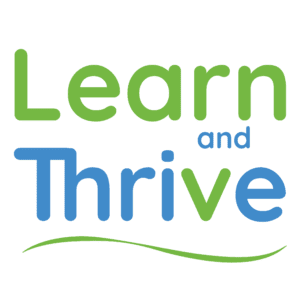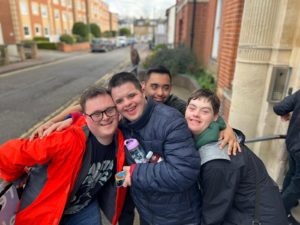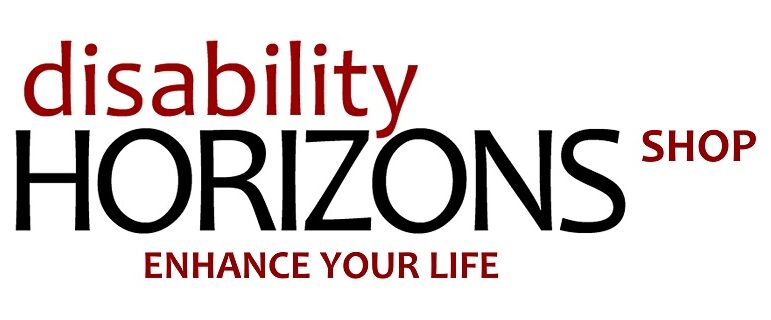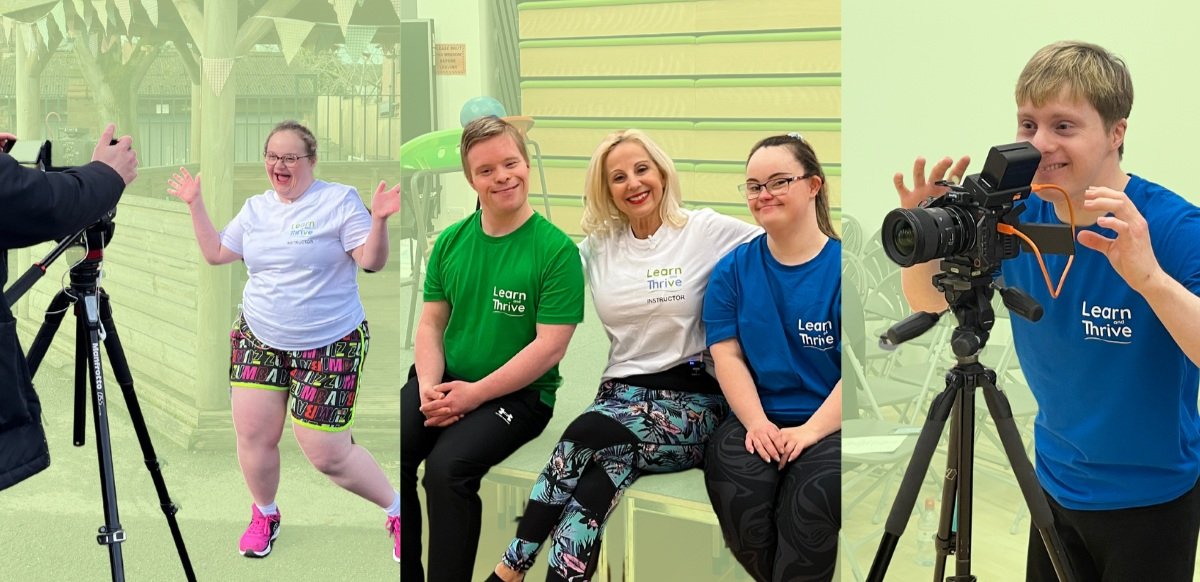Relationships and Sex Education for
Learners with Down’s Syndrome
Want to jump to the Easy Read Version of this blog? CLICK HERE
 This is a post from our friends at the charity LearnandThrive.org.uk who have free resources for parents and teachers:
This is a post from our friends at the charity LearnandThrive.org.uk who have free resources for parents and teachers:
Learn and Thrive is a charity which produces educational resources for children and young people with Down’s syndrome and other special educational needs. Created during lockdown, it aims to provide specialist teaching online, to be used across educational settings and in the home. The two projects, Teach Me Too and Learning for Life, cater for different age groups. The resources are all completely FREE digital tools to help children and young people with Down’s syndrome and SEN to learn and thrive.
Privacy, emotions, friendships, and puberty and the specific RSE needs of young people
with Down’s syndrome. Free resources.
Ever felt like your learner just isn’t getting the support you need? Struggling to know how to
best support their learning in Relationships and Sex Education? You aren’t alone but
Learning for Life might be able to help you – designed by experts and inspired by the lived
experiences of families and educators of learners with Down’s syndrome and SEND, and all
completely free.

Every day, young people with learning disabilities are put at risk, or even accused of being a
risk to others because of inappropriate ‘sexualised’ behaviour.
What is often seen as ‘cute’ or ‘loving’ behaviour when these children are young, is the same behaviour that puts these
young adults at risk of abuse and exploitation.
Learning for Life recognises the need to have a full and thorough understanding of the basic skills around socially appropriate behaviour,
relationships and keeping yourself safe.
Waiting for them to become young adults before addressing these concerns does these young people an injustice.
Providing teaching across the RSE curriculum, in an age-appropriate way for older learners, supports the foundation skills needed for success; Learning for Life covers key aspects of
the curriculum while adapting the teaching approach to the specific needs of the Down’s syndrome community and using their learning profile to specialise teaching to their strengths.
Helping Young People Understand the “Unwritten Rules”
Social struggles faced by those with Down’s syndrome often come from a lack of understanding of unwritten social rules and expectations.
While neurotypical students may pick up on some of these rules about personal space, privacy, friendships, and more, those with Down’s syndrome may not, and these skills are rarely taught explicitly.
Learning for Life picks apart this disparity and provides the precise teaching needed to support our community to keep themselves safe, happy, and healthy, with clarity, repetition,
and reinforcement.
Series and key topics covered:
Growing Up and Keeping Safe
- Appropriate and inappropriate touch
- Privacy
- Personal safety
- Emotions
- Introspection
- What emotions look like on the outside
- Caring Friendships
- Characteristics of good and bad friendships
- Journeys of friendships – making, repairing, ending friendships
Being Healthy
- Eating well
- Being active
- Looking after ourselves
- How To Be Healthy: Exercise videos led by and featuring individuals with Down’s syndrome
The Changing Adolescent Body
- Puberty changes for males and females
- Strategies for dealing with changes – periods, wet dreams, erections
- Personal hygiene
In creating these resources, Learning for Life supports young people to build these vital skills.
The project addresses areas such as the difference between inappropriate and appropriate
touch, and learning the correct greetings for people based on their relationship to the learner.
Learning for Life goes beyond the curriculum, to support the specific needs of its learners.
Understanding builds to practice, through developing clear strategies for dealing with
situations and challenges; how to change pads and period pants during a period, ways to
exercise to stay active, empowering learners to create and maintain positive friendships.
“The program is one of a kind – unique in every way. I have not seen any such
program before specifically created for those with Downs Syndrome.” – Khilna, parent
of a young person with Down’s syndrome.
 The videos and downloadable resources can be used across settings – at home, in school,
The videos and downloadable resources can be used across settings – at home, in school,
and support groups. They’re made to be worked through between an educator and
learner(s), for whom they can be personalised based on their needs.
Such important topics open the door for open, honest, and nuanced conversations, which can
better help the learner understand how these issues affect them in their world. The Learning
for Life project is online, free, and easy to use; making teaching across settings consistent,
clear, and easy.
Click here to visit Learn and Thrive.
Other resources
Children’s National Bureau Inclusion and SEND information
UK Statutory Guidance on Sex Education in Secondary Schools.
EASY READ version of this page:
Relationships and Sex Education for Teens with Down’s Syndrome
About Learn and Thrive
Learn and Thrive is a charity. They make learning tools for children and teens with Down’s Syndrome. These tools are also for kids with other special needs. They started during lockdown. Their goal is to help with online teaching at school and home. They have two projects:
- Teach Me Too: For younger kids.
- Learning for Life: For older kids and teens.
All the tools are free. They help children learn and do well.
Important Topics
Privacy, Emotions, Friendships, and Puberty
Young people with Down’s Syndrome need help with privacy, feelings, friendships, and puberty. Learning for Life has free resources for these topics.
Feeling Alone?
Do you feel your learner is not getting the help they need in Relationships and Sex Education? Learning for Life can help. Experts made these tools. They used real-life stories from families and teachers of children with Down’s Syndrome.
Staying Safe
Many young people with learning disabilities can be at risk because they don’t know about proper behaviour. Cute or loving behaviour when young can put them at risk as adults. Learning for Life teaches about safe andappropriater behavior, relationships, and staying safe.
Key Topics in Learning for Life
Growing Up and Keeping Safe
- Appropriate and Inappropriate Touch: What touch is okay and what is not.
- Privacy: Understanding personal space.
- Personal Safety: How to stay safe.
Emotions
- Understanding Emotions: What feelings look like.
- Introspection: Looking inside ourselves.
Friendships
- Good and Bad Friendships: What makes a good friend.
- Making, Fixing, and Ending Friendships: How friendships change.
Being Healthy
- Eating Well: Healthy food choices.
- Being Active: Exercise and staying fit.
- Personal Care: Looking after ourselves.
The Changing Body
- Puberty: Changes for boys and girls.
- Dealing with Changes: Handling periods, wet dreams, and erections.
- Personal Hygiene: Keeping clean.
Learning for Life Tools
Learning for Life helps young people with Down’s Syndrome learn important skills. They teach about:
- The difference between good and bad touch.
- How to greet people properly.
- Handling periods and staying active.
- Making and keeping friends.
Easy to Use
The videos and resources can be used at home, school, or in groups. They are made to be used by teachers and learners together. They can be personalized for each learner.
These tools help start important talks about these topics. They help the learner understand how these issues affect them. Learning for Life is free and easy to use.


